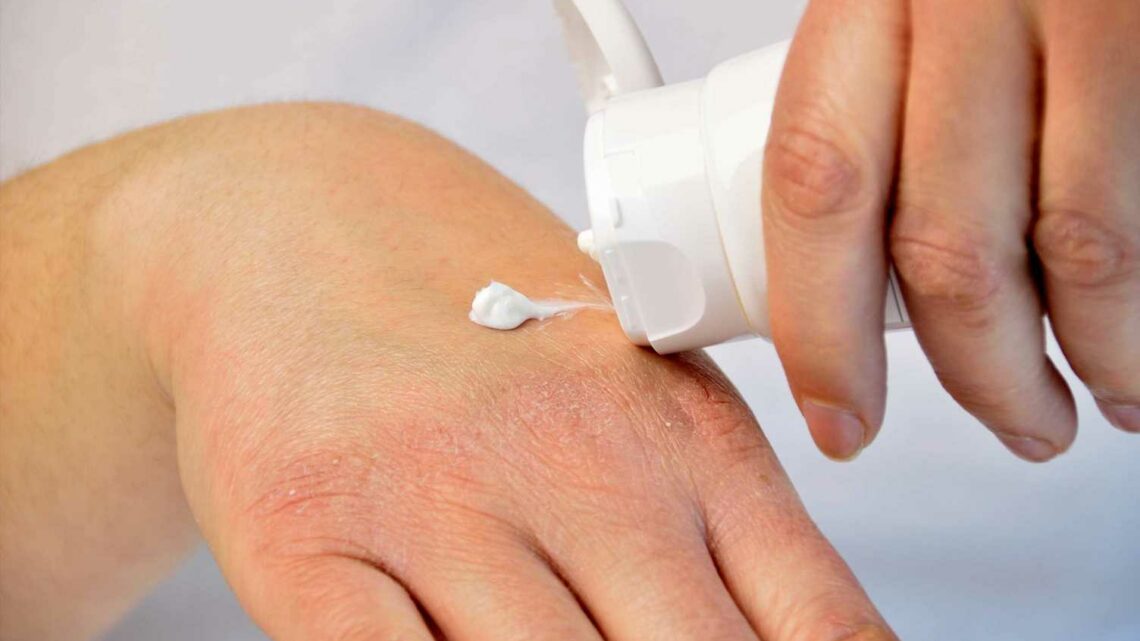
The 7 budget ways to save your lacklustre winter skin – from shower hacks to cheap gadgets | The Sun
November 15, 2023AS the weather gets colder, you might notice your skin isn't looking its best.
It might be drier, duller and prone to peeling or you might even notice some redness or darker spots that weren't there before.
You might be slathering on your moisturiser and hoping for the best, but a skin doctor has warned that some daily habits might be leaving your complexion worse for wear.
This could be the temperature of your shower or even your unconscious lip licking habit, according toDr Vanita Rattan CEO and Cosmetic Formulator at SkincarebyDrV.
Speaking to Sun Health, she outlined seven cheap things you can do save your lacklustre winter skin.
1. Skip the hot shower
After a day spent in the biting cold, a hot bath or shower can be just the thing to warm up your cockles.
Read more on skincare

I'm a skin doctor – here's why you should never pop a spot

From 'sugarface' to silent killer – 9 things your skin says about your health
While cranking up the heat of your water can be a true comfort in the moment, your skin certainly won't thank you for it later.
According to Dr Vanita: "The high water temperature can strip the skin of its natural oils, fats and proteins that keep the skin healthy.
"This can disrupt the skins natural protective barrier, causing the skin to feel dry and dehydrated."
While dry skin might not sound all the bad, Dr Vanita begged to differ.
Most read in Health

Agony for Indi Gregory’s family as sick baby’s life support is turned off

11 gross but interesting facts about poo – and when you must see a doctor

I’m a doctor – here’s the five ailments your GP never wants to hear about

From issues after quitting cigs to diabetes – Dr Jeff answers health questions
She said itchiness, redness and even peeling due to moisture loss, where common side effects of parched skin.
So you might want to skip those long hot showers, or risk making cold weather dry skin even drier.
Instead, "use lukewarm water and try to limit the time you spend in the shower to five minutes," Dr Vanita advised.
The key to dehydrating your skin afterwards and keeping it supple is using a fatty moisturiser all over once you've patted your body dry and locking that in with an oil.
2. Give your skin love with a mask
If your skin really needs some love, a mask might be your saving grace.
There's a wealth of suggestions online, but Dr Vanita suggested being wary about what you pick.
The skin doctor said: "Many DIY skincare recipes are based on anecdotal evidence or unproven claims, and there is no guarantee that they will actually work for you.
"In fact, some DIY treatments may even make your skin worse due to irritating ingredients such as lemon juice, baking soda and essential oils disrupting the skins natural PH balance."
But she did recommend doing a cling-film moisturiser mask, which involves applying a fragrance-free moisturiser to cleansed skin and cling-wrapping your face for 30 minutes.
"Although this DIY mask may look ridiculous, it is surprisingly a good method of occlusion – a cheap way of trapping water into the skin, leaving hydrated and plump skin," Dr Vanita shared.
Your face isn't the only spot you can lavish in moisture with a cling wrap mask.
"This is a cost-effective way of moisturising other areas of the body that tend to get dry during the winter as well, such as the hands and feet," according to the skin doctor.
3. Don't skip the SPF
You might think you don't need to lather your skin in sun cream when the sun is behind the clouds most of the time.
Despite the lack of blazing sun, winter brings with it its own skin hazards.
"Windburn is a condition that can occur when your skin is exposed to cold, winter air for extended periods," Dr Vanita told Sun Health.
"The wind can strip away your skin's natural oils and moisture, causing it to become red, dry, and irritated. In severe cases, windburn can also lead to blistering and peeling.
"The best way to prevent windburn is to wear protective clothing, such as a scarf around your face, and apply a barrier cream."
Icy winter wind is usually the main culprit of windburn, but the sun;s damaging UV rays can make it worse, the skin doctor went on.
As in the summer, sun cream will be your best friend here.
"Sunscreen can help protect your skin from the UV rays, as well as act as a protective layer to prevent your skin from drying out."
She recommded you go for an SPF50 and pay attention to the protection grade level on your label
"A PA++++ label will ensure you have up to over 95 per cent protection from the sun and help you safeguard against windburn," Dr Vanita explained.
4. Gently exfoliate
It's never a good idea to aggressively exfoliate your skin.
But your delicate is even more vulnerable in the winter as your skin becomes dry
As a result, hyperpigmentation – such as age spots, acne scars and brown marks – can appear more visible on the skin, Dr Vanita said.
"While hyperpigmentation isn't necessarily harmful, it can contribute to an aged, dull appearance.
"Gentle exfoliation can help address this by removing the build-up of dead skin cells that could be contributing to the appearance of hyperpigmentation."
But don't reach for a harsh scrub, as this can damage your skin barrier and cause microtears, leaving it more sensitive.
"A more even, controlled, and gentle way is through chemical exfoliation, with large Alpha Hydroxy Acid molecules such as Mandelic Acid and Lactic Acid," the skin doc advised.
The Ordinary's Mandelic Acid will cost you £6.50 at Boots, while it's AHA 30% + BHA 2% Peeling Solution is £5.10.
For something a little pricier, try SkincarebyDrV’s Exfoliate to Glow for £15.
5. Don't lick your lips
One of the first parts of our body that succumbs to colder weather is our pout.
You might find yourself licking your lips to moisten them.
Though your saliva can provide some initial relief, Dr Vanita warned that once it evaporates, "it takes with it the natural oils from the skin, causing the lips to feel drier than before".
She went on: "Saliva also contains an enzyme called amylase, which when left on the skin can cause irritation."
The drier winter air and your much needed-heating can also strip even more moisture from your lips, causing them to chap and crack.
"To prevent this, it's essential to use a lip balm with simple moisturising ingredients, such as petroleum jelly," Dr Vanita advised.
"Avoid scented lip balms which contain irritating fragrances that can cause allergic reactions or skin sensitivities, especially on the delicate skin of the lips. The bonus is that fragrance-free lip-balms tend to be much cheaper than the scented products."
6. Resist over cleansing
You might have found yourself double cleansing over the summer to remove your sweat and sun cream.
"However, when winter arrives, it's better to switch to a gentle and hydrating cleanser to help maintain your skin’s moisture," Dr Vanita suggested.
"One of the biggest mistakes when washing your face in winter is cleansing too much, as it can remove the skin’s natural oils.
"Over cleansing can compromise the skin barrier, leading to more dryness and increased sensitivity. This can be particularly problematic for skin of colour, as their skin has fewer ceramides compared to lighter skin."
She suggested opting for a gentler micellar face wash to revive and hydrate your winter dull skin.
There are plenty at Boots and Superdug for under £3.
7. Get the help of gadgets
If you though the only threat to your skin was outside, you're wrong.
"‘It’s not just the air outside of your home that can dehydrate the skin in winter, it’s also the climate inside your home," Dr Vanita shared.
When you turn the central heating on, the warmer air can rise and carry moisture with it it, lowering the humidity levels indoors.
"When the air is dry, it draws moisture from the skin, leading to a lack of hydration and potentially causing the skin to become dry, itchy, and irritated."
You can buy a nifty gadget to combat this.
Dr Vanita advised you "invest in a humidifier to increase the moisture levels in the air and help alleviate dry skin".
"Whilst purchasing a humidifier is an initial expense, maintaining optimal humidity levels in the home may allow you to set your thermostat to a lower temperature and reduce overall energy costs," she claimed.
Read More on The Sun

Gordon Ramsay becomes a dad for 6th time as wife Tana, 49, gives birth

Mum-to-be killed along with her baby in car crash on her way to give birth
"Ultimately, you can save on your heating bill whilst also creating a healthier indoor environment that doesn’t dry out the skin."
The gadgets can be pricey but you can find some at the £15 mark on Amazon.
Source: Read Full Article


